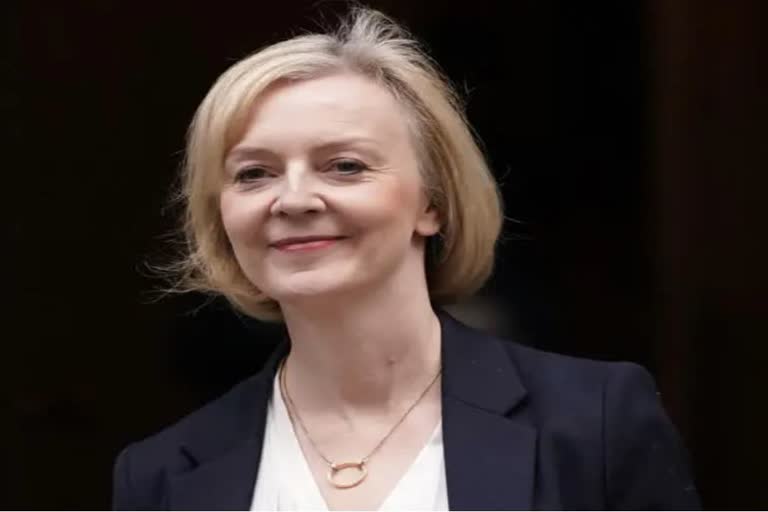London : British Prime Minister Liz Truss took office last month with hopes and promises of reinvigorating the British economy and putting it on the path to long-term success. It didn't go to plan.
Instead, Truss' tenure was scarred by turmoil as her economic policies threatened the country's financial stability, driving the pound to record lows, sparking chaos on bond markets and increasing mortgage costs for millions of people. Though Truss took office amid a cost-of-living crisis, the war in Ukraine and the lingering effects of the COVID-19 pandemic, her decision to announce 105 billion pounds (USD 116 billion) of tax cuts and spending increases without providing details on how she would pay for it unnerved investors, who warned of soaring public debt.
That undermined confidence in the government's ability to pay its bills and raised questions about the economic credentials of a new prime minister who took office after a deeply divisive contest for leadership of the governing Conservative Party. The disarray surrounding the economic plan weakened Truss's authority as prime minister, and ultimately led to her decision to resign on Thursday.
WHAT HAPPENS NOW?
The party says it will select a new leader and prime minister by October 28. Truss will remain prime minister until then. To avoid the need for a lengthy election campaign that could have left the country without an effective government for weeks, party leaders decided that lawmakers would have greater say in the choice and without weeks of hustings around the country.
Under the expedited process, challengers for the leadership must garner the support of 100 other Conservative lawmakers out of a total 357 by Monday afternoon. That means a maximum field of three for lawmakers to vote on. The last-placed candidate would then be eliminated and the top two candidates will face an online vote of the party membership. Conservative leaders are hoping that this lightning contest will produce a consensus candidate who can unite the party behind the tax and spending priorities Treasury chief Jeremy Hunt has already outlined.
WHAT ARE THE BIG HURDLES?
The first challenge will come just days after the new prime minister takes office, when Hunt delivers his fiscal plan to the House of Commons on Oct. 31. Truss triggered the crisis that led to her downfall when she and Hunt's predecessor unveiled plans for sweeping tax cuts without saying how they would pay for them and without providing independent analysis of their impact on government finances.
